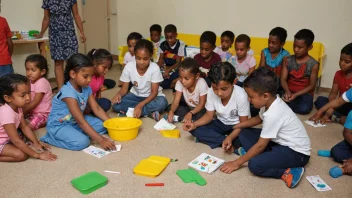Mental health is an essential component of overall well-being, yet it often remains overlooked in community settings. As we strive for social justice and community development, it is crucial to recognize the importance of mental health resources. This article explores why mental health support is vital, how it can be integrated into community initiatives, and ways individuals can get involved to make a difference.
One of the primary reasons mental health resources are essential is the increasing prevalence of mental health issues worldwide. According to the World Health Organization, approximately 1 in 4 people will experience a mental health condition at some point in their lives. These conditions can lead to social stigma, isolation, and a lack of access to necessary support. By prioritizing mental health resources, communities can break down these barriers and promote a culture of understanding and acceptance.
Integrating mental health resources into community settings can take various forms. Community centers can offer workshops focused on mental wellness, provide access to trained counselors, and create safe spaces for individuals to share their experiences. Additionally, collaboration with local schools can foster early intervention programs that teach children about emotional intelligence and coping strategies. By embedding mental health support into the fabric of community life, we can create a more resilient population.
Individuals looking to make a difference can take several actions to promote mental health resources in their communities. Volunteering at local mental health organizations, advocating for policy changes, or even starting a conversation about mental health with friends and family can all contribute to a broader understanding and acceptance of these issues. Furthermore, individuals can educate themselves about mental health and share this knowledge with their networks, helping to normalize discussions around mental well-being.
Another key aspect of promoting mental health resources is the focus on accessibility. Many communities, especially those in marginalized areas, lack access to mental health services. By identifying gaps in service provision and advocating for more inclusive policies, community members can help ensure that everyone has access to the support they need. This includes fighting against discrimination in healthcare and pushing for funding for mental health initiatives.
In conclusion, prioritizing mental health resources in community settings is essential for fostering well-being and social justice. By understanding the importance of mental health, integrating resources into community initiatives, and encouraging individual involvement, we can create healthier, more supportive environments for all. As we move forward, let us remember that mental health is not just an individual concern, but a collective responsibility that requires action and commitment from all members of the community.






